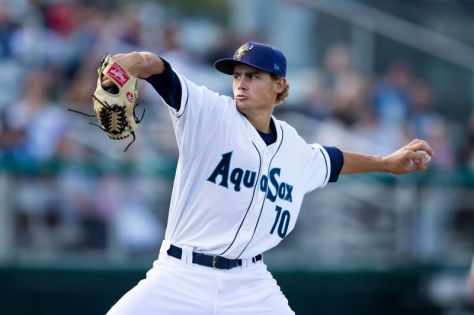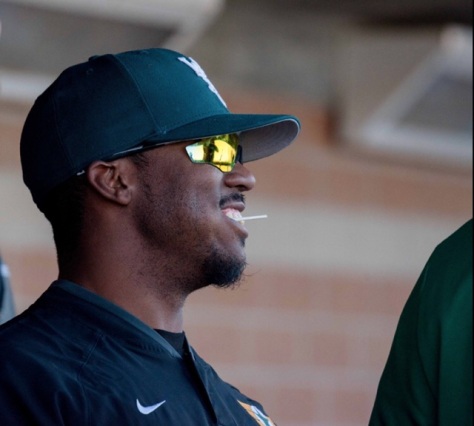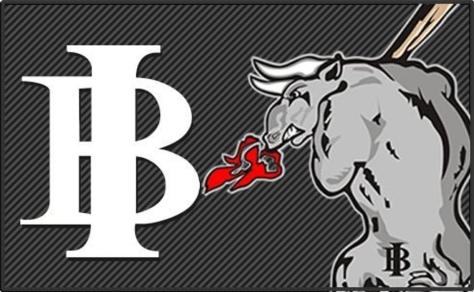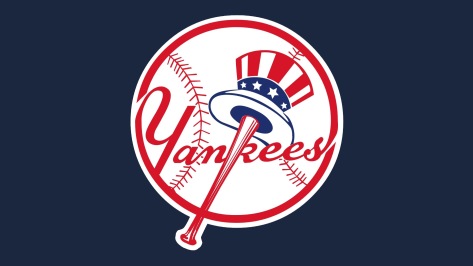
By STEVE KRAH
A.J. Reed is known for hitting the baseball very hard and for long distances.
How does the Terre Haute, Ind., native do it?
“I’m always looking for a heater,” says Reed of his approach at the plate. “I don’t want to let any fastballs in the zone go. I feel that’s the pitch I do the most damage on.
“If I can hit the fastball to left-center, I’m able to stay on the off-speed and hit it to right-center.”
Reed, a 6-foot-4, 260-pounder lefty-swinging first baseman, uses his dimensions to challenge the dimensions of ballparks.
“My size plays to my advantage really well,” says Reed, who lost about 15 pounds last off-season. “For other guys it’s bat speed.
“I feel like I can get away with a little bit more missing the barrel because I’ve got more behind the ball.”
Folks are still talking about Reed’s 2017 blast at Southwest University Park in El Paso, Texas.
“It cleared their Jumbotron,” says Reed. “It probably would have cleared these lights (at Huntington Park in Columbus, Ohio).
So Reed has light-tower power?
“On that particular swing, yeah,” says Reed, who was a slugging star at Terre Haute South Vigo High School and the University of Kentucky before being selected in the second round of the 2014 Major League Baseball First-Year Player Draft by the Houston Astros.
He was in Columbus this week as a representative of the Pacific Coast League’s Fresno Grizzlies in the 2018 Triple-A All-Star Game.
Reed, who swings a 34/32 Victus bat, was hitting .264 with 19 home runs, 11 doubles, three triples, 73 runs batted in and a .903 OPS (on-base plus slugging) average through games of July 12.
Reed, who turned 25 in May, led all of Minor League Baseball in home runs with 34 in both 2015 and 2017, winning the Joe Bauman Home Run Award. Bauman socked 72 for the 1954 Roswell (N.M.) Rockets.
To date, Reed has 114 circuit clouts in the minors plus three in 131 at-bats at the big league level with the Astros (his first one came July 2, 2016, off David Robertson of the Chicago White Sox). He clubbed 40 in three seasons at Kentucky (2012-14) and before that walloped 41 for Terre Haute South. He was named Indiana Mr. Baseball in 2011.
He stacked up honors at UK. In 2014, he was chosen for the Golden Spikes Award, Dick Howser Trophy and John Olerud Two-Way Player Award as well as national college player of the year by Baseball America, Perfect Game USA, ABCA, Collegiate Baseball/Louisville Slugger. He was the Southeastern Conference Player of the Year and Male Athlete of the Year.
“We decided for my junior year that we were going to do something special,” says Reed, who credits former Kentucky hitting coach Brian Green for his offensive approach. “If I could set a good example, everybody was going to follow and that’s what happened. It was a really good year.
“I owe him a lot.”
UK went 36-26 and played in the NCAA tournament in 2014. Green is now head coach at New Mexico State University.
Reed went 26-10 on the mound at Terre Haute South Vigo and was selected in the 25th round of the 2011 MLB Draft by the New York Mets, but opted to play as a two-way player at Kentucky, where Gary Henderson was head coach and also led the pitching staff.
“He’s one of the best pitching guys in the country,” says Reed of Henderson, who went on to be pitching coach then interim head coach at Mississippi State University. “He was a really good coach for me for three years.”
Southpaw Reed made 46 mound appearances (35 starts) for Kentucky and was 19-13 with a 2.83 earned run average, 174 strikeouts and 53 walks in 247 1/3 innings.
Two men that had a big impact on Reed’s development as he grew up in Terre Haute are South Vigo head coach Kyle Kraemer and American Legion Post 346 manager John Hayes.
“Coach Kraemer and I are still very close,” says Reed. “I started working with him well before I was in high school. I guess he saw something in me.
“He spent a lot of time with me working on my swing. That’s where it really started to pay off for me. He’s a very big part of my baseball career.”
Reed played Dixie Bee and Riley baseball then Legion ball with Post 346 and Hayes (who led that highly-successful program from 1985-2015) before turning it over to brother Tim Hayes.
“(John Hayes) is one of the most positive guys I’ve ever been around in the game of baseball,” says Reed. “He cared so much for his players.
“He’s a very influential person in my career.”
The bonds with the Hayes family were strengthened through Reed’s friendship with Jacob Hayes (son of Tim and Gail). A year ahead of A.J. in school, Jacob went on to play baseball at Indiana State University.
Darryl Robinson has been Reed’s hitting coach in three of his four seasons in pro baseball — High-A and last two years in Triple-A.##
“He’s kind of the same way as Kraemer,” says Reed of Robinson. “He’s just a very positive guy. He feeds your head with so much positive energy that you’re up there just knowing you’re going to be successful. That really works for me.”
Upbeat is the way Reed (#AJReed on Instagram) likes to approach baseball.
“I like to have fun,” says Reed. “You can’t play this game without having fun. There’s too much failure.”
Reed has observed plenty of success on his home state’s baseball scene.
“Baseball’s a big deal in Indiana,” says Reed. “They produce a lot of really good players. It’s obviously tough to compete with Florida, California and Texas where they get to play year-round outside. But we produce talent in Indiana for sure.
When Reed was at Terre Haute South, the Braves played in the Metropolitan Interscholastic Conference.
At the time, the MIC feature both Terre Haute schools — South Vigo and North Vigo — as well as Ben Davis, Carmel, Center Grove, Lawrence North, Indianapolis North Central and Warren Central
“You saw a lot of good talent in those Indianapolis schools,” says Reed.
A.J. and wife Shelby Reed have been married for nearly three years and are proud owners of cockapoos Moose and Buck. The Reeds recently bought a house in Terre Haute to be close to her family. A.J.’s mother, Debbie, lives in Florida. He also has two older sisters — Leslie and Carrie.

A.J. Reed, a former star at Terre Haute (Ind.) South Vigo High School and the University of Kentucky, is now playing in the Houston Astros organization. He has three home runs in 131 at-bats at the big-league level and 114 long balls in the minors since 2014. (Houston Astros Photo)

Terre Haute’s A.J. Reed signs autographs for fans at the 2018 Triple-A All-Star Game in Columbus, Ohio. He played first base and batted No. 4 for the Pacific Coast League while representing the Fresno (Calif.) Grizzlies. (Steve Krah Photo)

A.J. Reed, a Terre Haute, Ind., native, represented the Fresno (Calif.) Grizzlies in the 2018 Triple-A All-Star Game in Columbus, Ohio. Through July 12, he had clubbed 19 home runs and knocked in 73 runs. (Fresno Grizzlies Photo)
















